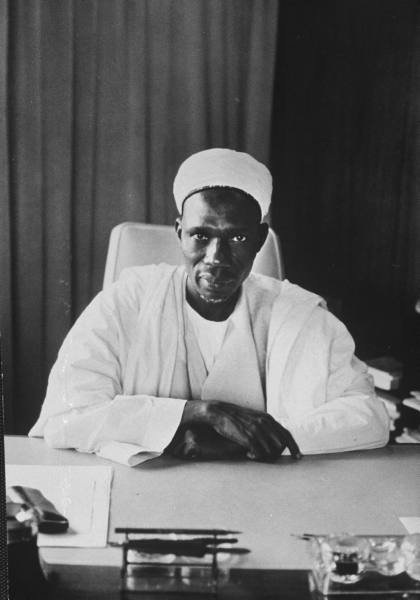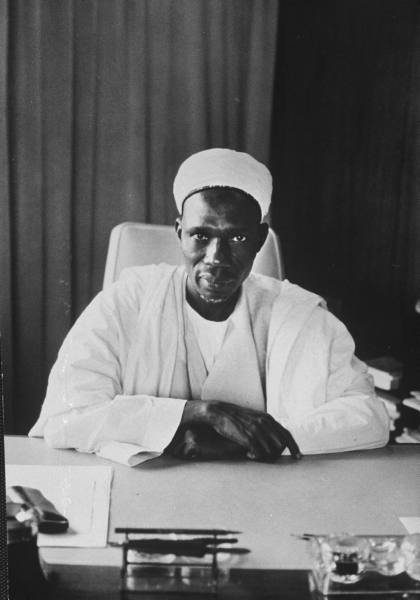Coming off the independence celebrations of Nigeria, it is important to reflect on some of the Heroes of our Independence from the colonialists. The line from the national anthem says, “…the labour of our heroes past, shall never be in vain…” It is in the light of this that, we remember one of the great heroes of Nigeria; not just at that time, but also in an everyday sense; Abubakar Tafawa Balewa.
The Man: Abubakar Tafawa Balewa
Abubakar Tafawa Balewa was born in December 1912 in Bauchi State, in the Northern Nigeria Protectorate. Balewa began his education at a Koranic School in Bauchi; when southern colonial administrators began to push for western education in the Northern region, Balewa was among the children sent to Tafawa Balewa Elementary School, after the Koranic school. Thereafter, he proceeded to Bauchi Provincial School. Like many of his contemporaries, he studied at Barewa College, then known as Katsina College, where he was student number 145. Ahmadu Rabah, later known as Ahmadu Bello, was student number 87 and was two years his senior, while Abubakar Imam was a year ahead of him. The College was several kilometers from Bauchi and was not close to a railway station nor other public transportation. During holidays, which was twice a year, Balewa trekked home, a journey of more than 400 kilometers. He trekked for 40 kilometers a day, before finding a resting place at a nearby village. In total, the journey took him 10 days.
Balewa: The Journey to Independence
In 1946, Balewa was elected to the Northern House of Assembly, and to the Legislative Council in 1947. As a legislator, he was a vocal advocate of the rights of Northern Nigeria. He supported hesitance by the North to become independent, based on the objection that the north and south regions were not on an equal footing. In the Northern Assembly, he sought more roles and responsibility in the Native Administration for the educated members of the emirates. That responsibility he sought for, was a few years ahead of him; closer than he probably thought.
Balewa entered the government in 1952 as Minister of Works and later served as Minister of Transport during a time Nigeria was moving towards self-government. During his tenure at the transport ministry, both the Marine and Railway departments were transformed to corporations and the designs for a bridge over the Niger and plans for the Kainji Dam were developed. In 1957, NPC won the plurality of votes in the Federal House of Representatives and Balewa became the Chief Minister and designated Prime Minister.
Balewa: The Heroic Role of Unifying the Different Regions
Balewa was a gentleman both by character and conduct. This was evidenced by his desire for a united Nigeria. Given that independence was looming, there was a need to unify the divided quarters of Nigeria. As part of his plans to unify the country towards the move for independence in 1960, he formed a coalition government between the NPC and the National Council of Nigeria and the Cameroons (NCNC), led by Nnamdi Azikiwe and also invited the Action Group (A.G.), the 1957 cabinet therefore, was constituted as an all-party cabinet. Though Chief Obafemi Awolowo, the leader of A.G. and premier of the Western region was sceptical of the plan, the national executive committee of Action Group party endorsed the National Government and Ayo Rosiji and Samuel Akintola were nominated by the party. During this period, Balewa developed a close relationship with K.O. Mbadiwe from NCNC and Akintola from AG.
This task was of huge significance to the stability of Nigeria in those early formative years because, prior to Nigeria’s independence, a constitutional conference in 1954 had adopted a regional political framework for the country, with all regions given a considerable amount of political freedom. The three regions then were composed of diverse cultural groups. The premiers and some prominent leaders of the regions later took on a policy of guiding their regions against political encroachment from other regional leaders. Balewa’s administration was characterized by a consistent effort to minimize the turbulence that came with the regional factionalism.
In addition to that, Balewa played important roles in the continent’s formative indigenous rule. He was an important leader in the formation of the Organisation of African Unity and creating a cooperative relationship with French-speaking African countries. He was also instrumental in negotiations between Moise Tshombe and the Congolese authorities during the Congo Crisis of 1960–1964. He led a vocal protest against the Sharpeville Massacre of 1960 and also entered into an alliance with Commonwealth ministers who wanted South Africa to leave the Commonwealth in 1961. His role in ensuring that peace and stability prevailed in the African topography cannot be overstated.
Though the man has been long gone, the role he has played in a unified Nigeria is possibly one of the reasons Nigeria is still one country as it is known today. Indeed, “the labour of our heroes past shall never be in vain“! At least, not today, and hopefully, not anytime soon.
Abubakar Tafawa Balewa: Past Hero and justifiably also, an Everyday Hero.
Sources:
Wikipedia
Biography.yourdictionary
Featured Image Source: Wikipedia


